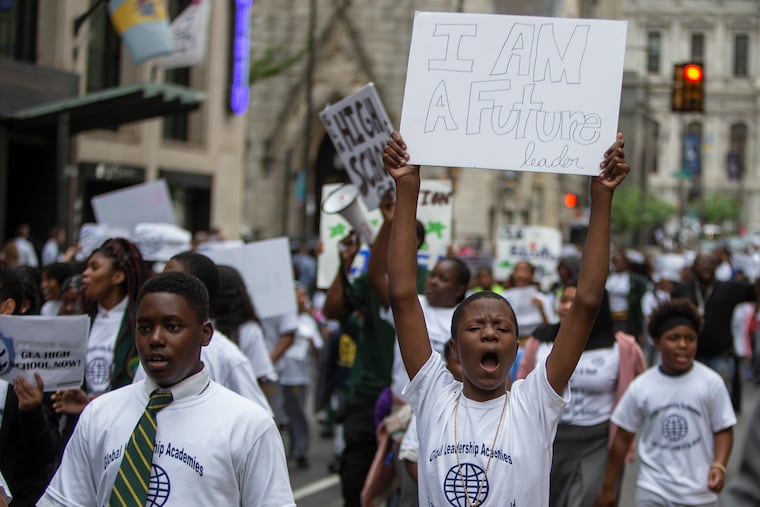Charter school reform bills don’t make the grade | Editorial
What is driving lawmakers to untether charters from the local systems that support and oversee them?

Twenty-two years should be enough time to get something right. But that has not been long enough for state lawmakers who, on creating a law that allowed charter schools to open in the state in 1997, have done very little to take honest stock of how the law could be improved so that students in all schools would benefit. Instead, they seem fixed on giving the charters less accountability and more independence from the public education system without evidence that their performance warrants it.
Today, 267,000 students in the state attend 180 brick and mortar and cyber charter schools; 87 of those schools are in Philadelphia. Their effectiveness as viable academic alternatives that could help inform improvements in public education as a whole is at best a mixed bag. Their effectiveness at charming lawmakers is unquestioned.
No robust reforms to the original law have succeeded since it passed in 1997. Most attempts have centered on taking away control from local school districts’ oversight. The latest series of bills being considered in Harrisburg are no exception. And since nearly half of the charter schools are in Philadelphia, that could undermine the structure and process that the School District has established and refined over many years to oversee the schools.
For example, one provision would replace locally crafted charter applications with a standardized application. That means that the school districts would be limited in the kind of information they require for charter applicants, such as past performance of charter operators, or evidence of community support.
Another provision in the charter bills would also make it harder to close poor performing charters, by shortening the time line of the renewal process. It would also allow further expansion of charters without district approval; for example, if a school with no caps on enrollment reaches capacity, it would be allowed to open another facility.
The financial implications of these changes are significant — not just to the School District, but to taxpayers. Every charter enrollment gets paid for out-of-district per-pupil budget allocation. Without the ability to control the size of the charter school population, the School District loses its ability to control its own budget — now or in the future.
What is driving lawmakers to untether charters from the local systems that support and oversee them? (Not all lawmakers; Sen. Pat Browne (R., Lehigh) wants to create the Charter School Funding Advisory Commission. State Rep. James Roebuck (D., Phila.) has issued detailed reports on charter costs and performance.)
Some charters have undeniably succeeded. Taken as a whole sector, however, the answer is not so clear. Study after study point to only marginal improvements, and cyber charter performance is dismal, despite the fact cybers get the same per-student allocation as brick and mortar schools. Since 1997, 43 charters have closed. The charter experiment is a worthy one, and its promise is still viable. But rapid expansion of the sector has not allowed honest assessment of what’s working and making sure that those models are replicated.
If the bills succeed, Philadelphia — and its children — will bear the brunt of these changes.